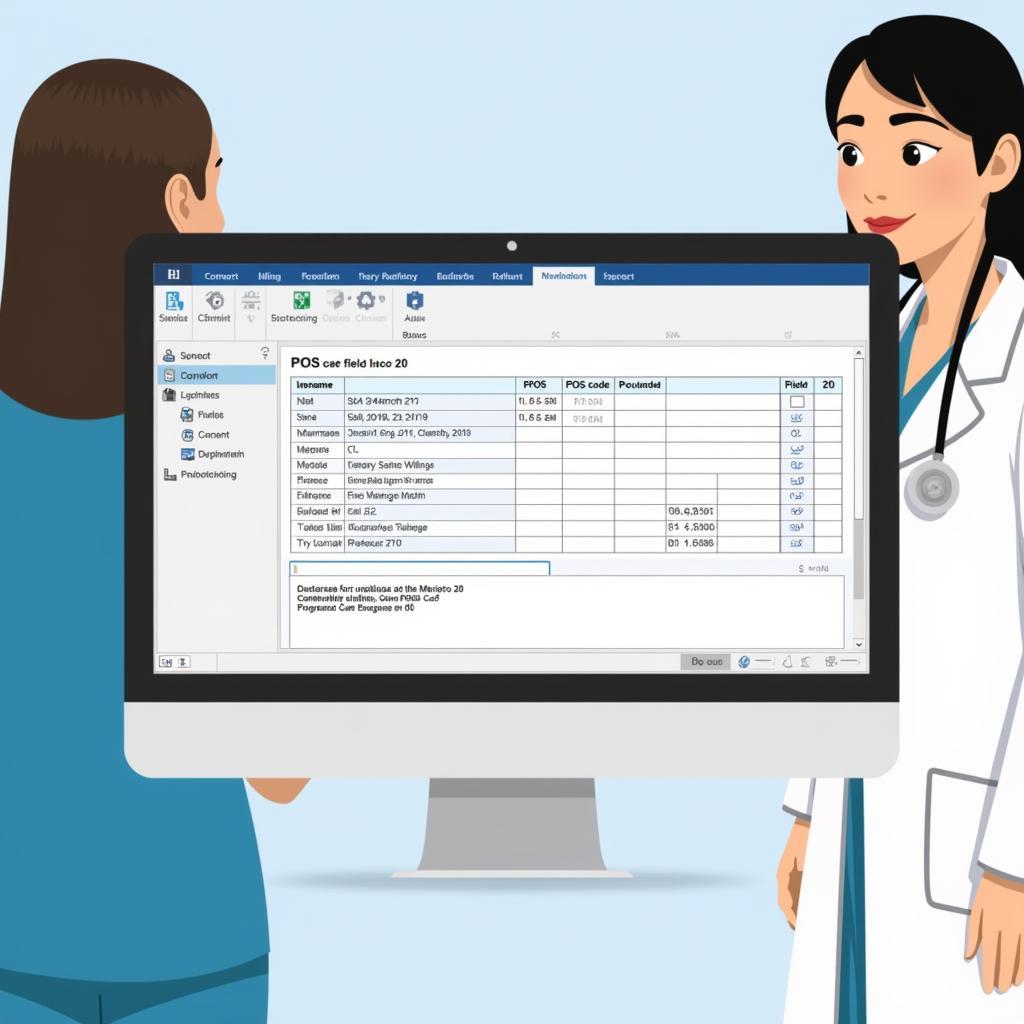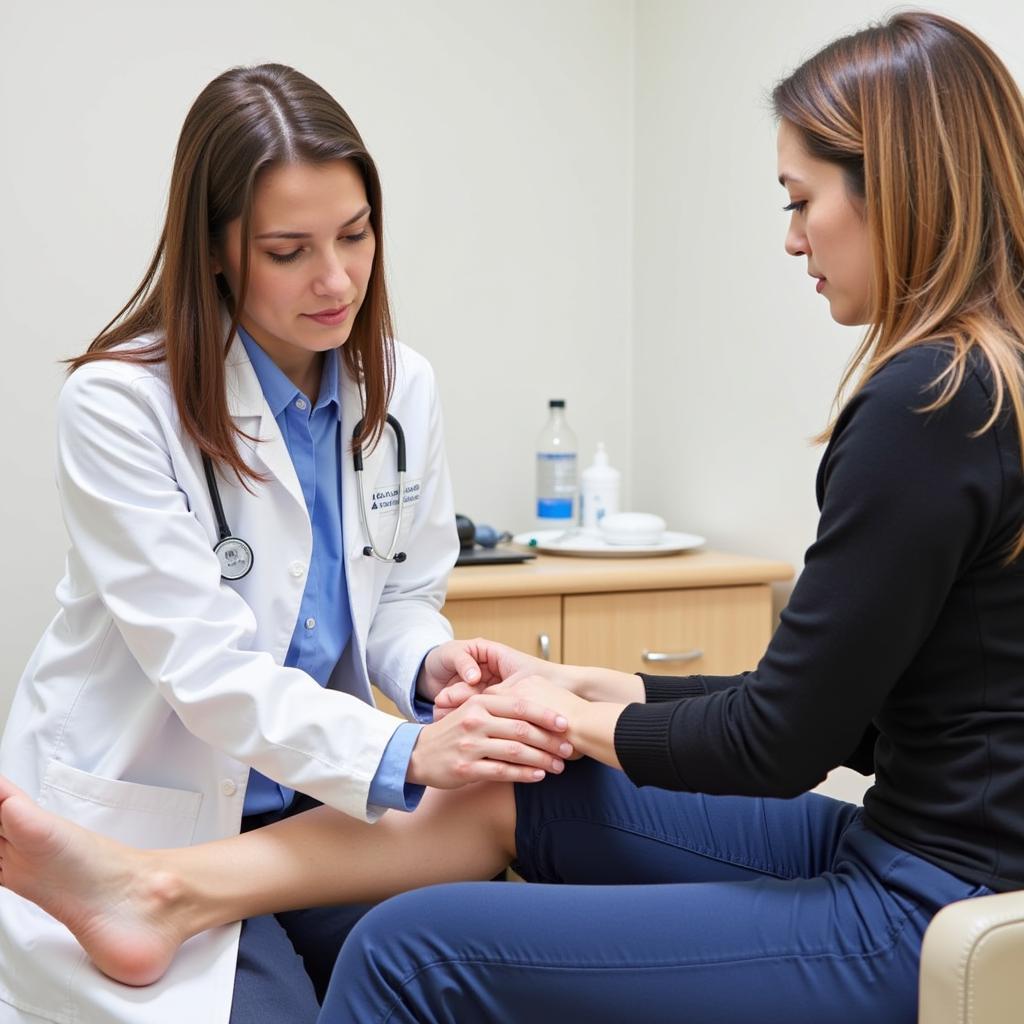What Place of Service Code Identifies an Urgent Care Facility?
Understanding place of service (POS) codes is crucial for accurate medical billing and reimbursement. If you’re looking for the POS code that identifies an urgent care facility, you’ve come to the right place. This article will delve into the specifics of POS codes, focusing on the code for urgent care facilities, and explain why it’s so important for both patients and healthcare providers.
Decoding the Urgent Care POS Code: 20
The place of service code that identifies an urgent care facility is 20. This code signifies that the service was provided in an urgent care center – a facility that provides immediate medical care for non-life-threatening illnesses and injuries. Using the correct POS code, like 20 for urgent care, ensures proper claims processing and helps avoid reimbursement issues. It’s a critical piece of information that helps insurance companies understand where and how medical services were rendered.
Why is the Correct POS Code Important?
Using the correct POS code goes beyond just accurate billing. It has significant implications for both patients and healthcare providers. For patients, using the correct code can mean the difference between a claim being paid or denied. For providers, accurate coding ensures they receive the appropriate reimbursement for services rendered, helps with data analysis for healthcare trends, and maintains compliance with regulations. Incorrect coding can lead to claim denials, delays in payment, and even potential audits.
Impact on Reimbursement and Claims Processing
The POS code directly impacts how insurance companies process claims and determine reimbursement rates. Different locations often have different reimbursement rates associated with them. For instance, a procedure performed in a hospital outpatient department (POS code 22) might have a different reimbursement rate than the same procedure performed in an urgent care center (POS code 20). Therefore, accurately reporting the POS code is essential to ensure appropriate payment.
 Urgent Care Center Billing Codes Showing POS 20
Urgent Care Center Billing Codes Showing POS 20
Importance for Healthcare Data Analysis
POS codes are also valuable data points for analyzing healthcare trends. By tracking the location of service, researchers and policymakers can gain insights into healthcare utilization patterns, identify areas of need, and make informed decisions about resource allocation. This data can help improve healthcare access and quality.
Ensuring Compliance and Avoiding Audits
Accurate POS coding is essential for compliance with healthcare regulations. Incorrect or fraudulent coding can lead to significant penalties and even legal action. Using the correct POS code helps maintain transparency and accountability in healthcare billing practices.
Common Scenarios Requiring POS Code 20
Several situations specifically require the use of POS 20. These include:
- Treatment for minor illnesses like colds, flu, or strep throat.
- Care for minor injuries like sprains, cuts, or burns.
- X-rays and lab tests performed at the urgent care center.
- Evaluation and treatment of allergic reactions.
- Suturing of lacerations.
 Doctor Treating Patient in Urgent Care Setting
Doctor Treating Patient in Urgent Care Setting
What if I’m Unsure About the Correct POS Code?
If you are unsure about the correct POS code to use, it’s always best to consult with a medical billing professional. They can provide guidance and ensure accurate coding practices.
Beyond Urgent Care: Other Common POS Codes
While this article focuses on POS code 20 for urgent care facilities, other common POS codes include:
- 11: Office
- 21: Inpatient Hospital
- 22: Outpatient Hospital
- 23: Emergency Room – Hospital
Understanding these different codes is helpful for anyone navigating the healthcare system.
Conclusion
In conclusion, knowing that place of service code 20 identifies an urgent care facility is fundamental for accurate medical billing and reimbursement. Using the correct code ensures smooth claims processing, helps avoid denials, and contributes to accurate healthcare data analysis. Remember, accuracy in coding is crucial for both patients and healthcare providers.
FAQ
- What does POS stand for? POS stands for Place of Service.
- Why is the POS code important? It ensures accurate billing and reimbursement.
- What is the POS code for a doctor’s office? The code for a doctor’s office is 11.
- Where can I find a complete list of POS codes? You can find a complete list on the CMS website.
- What should I do if I’m unsure about the correct POS code? Consult with a medical billing professional.
- Can the wrong POS code lead to claim denial? Yes, it can.
- Is POS code 20 used for telehealth visits? No, a different code is used for telehealth.
Need further assistance? Contact us via WhatsApp: +1(641)206-8880, Email: [email protected] or visit us at 456 Oak Avenue, Miami, FL 33101, USA. Our customer service team is available 24/7.

